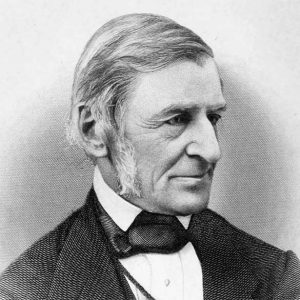The Emerson Society and the William James Society will co-sponsor “Emerson & William James” at the American Literature Association Annual Conference, May 2024.
It is well known that William James considered himself to be Ralph Waldo Emerson’s spiritual heir. Their lives were intertwined: Emerson was James’s godfather, and Emerson was so close with the James family that one room in their New York house was designated as “Mr. Emerson’s room” due to frequent visits. James also took an intellectual interest in Emerson. Even early on, as Robert Richardson describes, Emerson “was certainly vividly present in [James’s] imagination.” While James disagreed with many of Emerson’s more transcendental claims, in 1903 William wrote to his brother Henry to exclaim, “Emerson is exquisite!”
This panel seeks papers exploring the interconnections between Emerson and William James. Topics may include their shared philosophical, religious, or literary perspectives; their transnational influence; biographical connections; philosophical disagreements; or blended comparisons (e.g. “Emerson’s pragmatism” or “James’s transcendentalism”). Papers with interdisciplinary perspectives—philosophy, psychological, ecology, religious studies, etc.—are especially welcome. Please send a title and an approximately 250-word abstract to thomas.howard@wustl.edu by January 12, 2024.
The Emerson Society will sponsor “Emerson & Varieties of Religious Experience” at the American Literature Association Annual Conference, May 2024.
Emerson read and thought broadly across religious texts and traditions. He studied the Bhagavad Gita, the Qur’an, the Analects of Confucius, St. Augustine’s Confessions, and the works of Emanuel Swedenborg. He read the Quakers, the Stoics, and the Mystics, and he drew inspiration from individuals as diverse as Mary Moody Emerson, William Ellery Channing, Sampson Reed, Friedrich Schelling, and Germaine de Staël. This panel invites papers on Emerson and varieties of religious experience from the nineteenth-century until now. Topics might include, but are not limited to, texts and traditions that influenced Emerson’s religious thought; Emerson’s influence on later religious thinkers; the scholarly reception of Emerson’s religion; connections between religious experience and aesthetics; and the role of religion in social justice movements. Please send a title and an approximately 250-word abstract to thomas.howard@wustl.edu by January 12, 2024.
The Emerson Society will sponsor “Transcendentalist Legacies of Resilience” at the Thoreau Society Annual Gathering, July 2024.
“Resilience” is not a word that Emerson used. Yet, there is much in Emerson’s writings about Nature’s restorative power, and essays such as “Self-Reliance,” “Circles,” “Experience,” “Power,” “Fate,” “Courage,” and “Character” contain lines of argument that can be read as analogous and perhaps even foundational to our contemporary notions of resilience. As he states in “Courage,” it “perfect will, which no terrors can shake, which is attracted by frowns and threats or hostile armies, nay, needs these to awake and fan its reserved energies into a pure flame, and is never quite itself until the hazard is extreme; then it is extreme and fertile, and all its powers play well.”
This panel seeks papers that advocate for a reading of Emersonian resilience and that consider how the Transcendentalists responded to personal, political, societal, and technological change in their own time as well as how they influenced later thinkers and movements. Topics might include, but are not limited to, political and social movements such as abolitionism, civil rights, environmentalism, labor reform, or personal trauma. Please send a title and an approximately 250-word abstract to Bill Scalia bscalia@alumni.lsu.edu by January 12, 2024.
